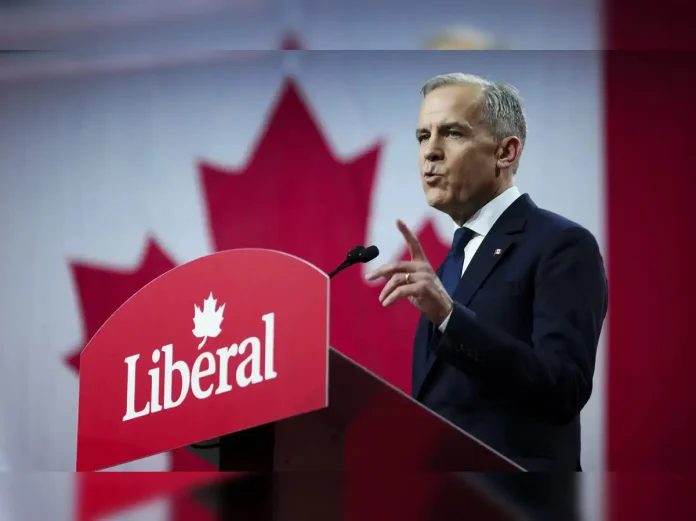
Mark Carney has won Canada’s federal election, securing a new mandate as prime minister in a result widely viewed as a political rebuke to U.S. President Donald Trump.
The victory, projected by CBC, CTV News, and the Associated Press, signals a resurgence for the Liberal Party amid rising nationalist sentiment.
A former central banker with a global reputation but limited political experience, Carney had called a snap election last month following a dramatic surge in Liberal support.
The party overcame an early 20-point deficit in the polls, galvanized by public backlash to Trump’s inflammatory comments—including a widely condemned suggestion that Canada be annexed as the “51st state”—and new U.S. tariffs on Canadian exports.
While the Liberals are projected to win the most seats, it remains uncertain whether they will achieve a majority in the 343-seat House of Commons.
CTV News expects the party to fall short, which would leave Carney leading a minority government requiring support from smaller parties to govern. Minority governments in Canada typically last fewer than three years.
The final days of the campaign were marred by a mass shooting at a Vancouver street fair that left 11 people dead and forced a temporary pause in campaigning. Authorities have ruled out terrorism, attributing the attack to a lone individual with a history of mental illness.
Carney assumed office earlier this year following the resignation of former Prime Minister Justin Trudeau. He defeated Conservative Party leader Pierre Poilievre, who had been favored until Trump’s rhetoric reshaped the political landscape.
In his campaign, Carney pledged to take a firmer stance against U.S. trade policies and reduce Canada’s economic reliance on its southern neighbor. He also promised significant investment in domestic industries and infrastructure.
Prior to entering politics, Carney served as governor of both the Bank of Canada and the Bank of England, making history as the first non-British head of the latter.

 Mzansi xxx
Mzansi xxx
